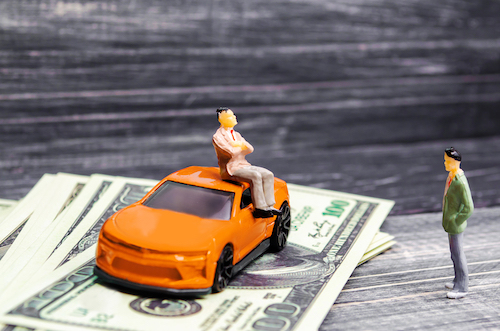 If you’ve ever envied a colleague talking about the vacation they are taking in two weeks, you’re likely not alone.
If you’ve ever envied a colleague talking about the vacation they are taking in two weeks, you’re likely not alone.
Research has long established that emotions towards events happening in the future: a wedding, an exam, a holiday, are more heightened than events that have already occurred. But now researchers have found the same can be said for experiencing envy towards someone else.
They found that you are more likely to be envious of a person’s covetable event before it happens, than after.
“We found that the same event elicits less envy after it's already occurred vs. before it's about to occur, and especially so for the malicious side of envy. People are less bothered by others' desirable outcomes after those desirable outcomes are achieved,” Ed O’Brien, author of the study and a psychological scientist at the University of Chicago Booth School of Business.
“Conceptually, envy is an interesting emotion because it can simultaneously lead to "bad" outcomes (like stress and desires to tear the other person down) and "good" outcomes (like feeling inspired and motivated to pull oneself up). This allows for a highly controlled, more nuanced test of how time affects emotion - does the passing of time affect negative outcomes the same or differently as it affects positive outcomes?”
O’Brien says that with more and more people putting their lives online for all to see, the study of envy in the context of social media is particularly relevant.
“Practically, the study of envy is growing in importance with the rise of social media and other opportunities to compare oneself to others. Given that people share information on social media at different times of an event (e.g., "All packed for Maui!" vs. "Back home from Maui!"), we thought it would be important to assess whether these small differences in temporal information mattered,” he said.
To determine whether timing influenced how people felt envy, O’Brien and his colleagues enlisted 620 people to be studied. Some were students at university, other adults in the local area and some were online participants.
The participants were asked to imagine a close friend experiencing something they themselves desired: being promoted to a dream job, taking a vacation or buying a dream car. Some of the participants were asked to imagine how they would feel in the time leading up to the events occurring, and the others were asked to imagine how they might feel in the weeks and days following the event.
Even with a hypothetical scenario, the researchers found that timing still matters. The participants showed that they regarded the experiences as less enviable after they occurred than before they happened.
To test this idea with real world events, the researchers examined the feelings experienced by the participants in relation to a peer’s Valentine’s Day date. The researchers found that in the days leading up to Valentine’s Day, envy grew among the participants, but after February 14 passed, envy levels dropped and remained low for the remainder of February.
The researchers repeated this with a new group of participants the following year and found the same thing.
Those who were asked to imagine their reactions to an enviable event after it occurred reported low levels of malicious envy like dislike, ill will or frustration. But those who were asked to think about an event already passed reported benign envy like inspiration and motivation.
The researchers hope to expand their research to real world contexts and account for things like social media.
They say that overall, their findings suggest that envying another person’s covetable experience will likely fade with time.
“The take-home message from this research is the timing of events matters. When people feel upset about a peer's enviable romantic date, it might help to bring to mind what's causing this stress. If the event happens to be in the future, this could be a totally incidental variable for why people feel so bad about themselves - it's not them, it's not greatness of the date per se, but merely because the date is looming in the future. Knowing this, people might feel better knowing that, once that date inevitably comes and goes, they might feel a little bit better,” O’Brien said.
Elizabeth Pratt is a medical journalist and producer. Her work has appeared on Healthline, The Huffington Post, Fox News, The Australian Broadcasting Corporation, The Sydney Morning Herald, News.com.au, Escape, The Cusp and Skyscanner. You can read more of her articles here. Or learn more about Elizabeth and contact her via her LinkedIn and Twitter profiles.